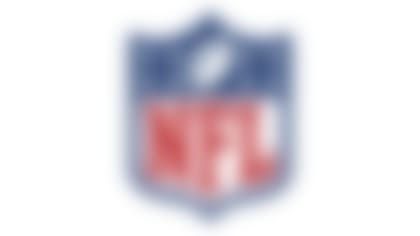NEW YORK -- A former federal prosecutor hired by the NFL to review its investigation of the New Orleans Saints bounty scandal said the evidence was substantive, detailed and strong enough to warrant NFL Commissioner Roger Goodell's suspensions of players Jonathan Vilma, Will Smith, Anthony Hargrove and Scott Fujita.
Mary Jo White, who worked in cases against former mob boss John Gotti and other high profile trials, said her independent review showed Goodell was well within his right to come down as hard as he did on the four defensive players.
"There's no doubt how solid the evidence is," White said in an interview with NFL Network and NFL.com on Thursday. "In my life as a prosecutor I've had a lot less [evidence] ... to obtain a conviction. So no question about how solid the evidence is."
Vilma was suspended for the 2012 season. Smith was suspended for four games, Hargrove, now with the Green Bay Packers for eight games and Fujita, who plays for the Cleveland Browns, for three games. All but Vilma can take part in all team activities through the preseason. Vilma's suspension took effect Wednesday when the punishment was announced. All players plan to appeal to Goodell.
Vilma, as well as several players and the NFL Players Association, have argued that the NFL has not shown any evidence tying any players to a "bounty" program. White said the evidence not only shows a program was in place -- Hargrove gave written testimony to the fact, which White said was corroborated by other sources -- but that there is a money trail of sorts.
"No question," White said. "This was a pay-for-performance bounty program -- prohibited, clearly prohibited for the players to participate in, for the coaches to participate in. And it did involve funding that pool. The players funded the vast majority of the pool, and it involved payouts of money for plays that included legitimate defensive plays but also plays that plainly involve injuries to other players ... this program provided rewards for those kinds of things."
Vilma was cited for offering $10,000 to any player that injured former Arizona Cardinals quarterback and current NFL Network analyst Kurt Warner in a playoff game in 2009 as well as offering the same reward for then-Minnesota Vikings quarterback Brett Favre the following week. Vilma vehemently denied that charge.
"I never paid or intended to pay $10,000 or any amount of money to any player for knocking Kurt Warner, Brett Favre or any other player out of the 2009 divisional playoff game, 2010 NFC championship game or any other game," Vilma, a defensive captain, said in a statement Wednesday. "I also never put any money into a bounty pool or helped create a bounty pool intended to pay out money for injuring other players."
The brunt of the player punishment seems to stem from actions that took place during the Saints' playoff run en route to the Super Bowl following the 2009 regular season. The NFL initially opened an investigation into a "bounty" program with the Saints then but that was ended things when their inquiries were blunted, which the NFL said now, was because it was lied to.
White said the Saints' infractions "escalated" around the 2009 playoffs but the punishments were for a bounty program that existed through last season -- and the playoffs. White also re-iterated that players declined to be interviewed by the NFL and missed out on the chance to rebut any of the accusations but added that the evidence was so strong against the players, she's not sure how much of a difference their testimony would have made.
White also said that the punishment, based on the evidence, was appropriate.
"In my opinion they certainly were," she said. "It was a decision by the Commissioner but given the nature of what's involved here, it directly threatens player safety and integrity of the game. In my view (the punishments) certainly were appropriate, they should have been strong and they were."
Follow Steve Wyche on Twitter @wyche89.












